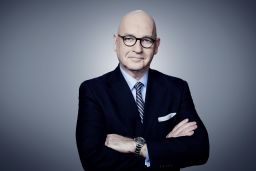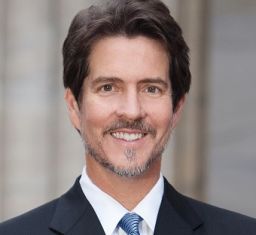CNN Opinion asked expert legal analysts and commentators to weigh in with their takeaways from the Paul Manafort verdict and the Michael Cohen saga: what it all means and what comes next. The views expressed in these commentaries are solely those of the authors.
Joey Jackson: Tuesday could mark the beginning of the end of Trump’s presidency

Tuesday has been a huge day in the history of our country – and it will certainly be remembered that way. The White House took two seismic hits that could bring down the President of the United States. Paul Manafort was found guilty of eight felonies by a jury of his peers in Virginia, while the President’s long-time fixer, Michael Cohen, pleaded guilty to eight felony offenses, admitting he acted “in coordination and at the direction of a candidate for federal office.” Make no mistake about it, he was talking about the now-President of the United States.
What does it say about the President? After all, aren’t we judged by the company we keep?
Up until now, Republicans in Congress have had little appetite to seriously investigate Trump, much less utter the dreaded “I” word: impeachment. But Congress’ blind support of the President could change drastically if proof is leaked, or otherwise surfaced by way of documentary evidence, that proves that Trump “coordinated and directed” Cohen to violate the law. Congress will then be seen as supporting an alleged criminal. And that can’t be good politically – especially in a midterm election year.
Meanwhile, Manafort’s close association with Trump does not bode well for the President. The former head of the Trump campaign is now a convicted felon. Manafort’s lies, misrepresentations, deceit and hubris landed him in this position. One can only wonder whether another bird with the same feathers will suffer a similar fate.
This leads to even more potentially bad news for the President. The upcoming midterm elections could very well change the dynamics of Congress by placing control in the hands of Democrats. Should this occur, the House will most assuredly go after the President and institute impeachment proceedings for “high crimes and misdemeanors.” All it takes is a majority vote in the House to impeach. And if the Democrats have control, it would mean they have such a majority.
That would then kick the case over to the Senate for an Impeachment trial, in which 67 senators (or two-thirds), would be needed to convict Trump, thereby removing him from office. That’s a heavy and unlikely lift indeed. But perhaps it will get much lighter if there is cold proof the President is an alleged criminal.
In that case, Republicans will have a hard time looking the other way.
Tuesday could mark the beginning of the end of Trump’s presidency. A day that will go down in history indeed.
Joey Jackson is a criminal defense attorney and a legal analyst for CNN and HLN.
Caroline Polisi: Manafort’s trial sheds light on Mueller’s potential collusion case

The refrain from the White House over the course of Paul Manafort’s bank- and tax-fraud trial – the first in special counsel Robert Mueller’s investigation – is that the charges “have nothing to do” with the President or the Trump campaign. In fact, noting that some of the conduct charged stems back 12 years, the President tweeted, “These old charges have nothing to do with Collusion – a Hoax!,” an assertion meant to buttress his argument that the entire Russia investigation is a “witch hunt” (a phrase he has used so often, it’s become something of a tagline).
And while it may be true that the charges faced by Manafort, Donald Trump’s former campaign chairman, had relatively little to do with his time on the campaign, they allowed us to learn at least two important pieces of information that shed light into the opaque abyss that is Robert Mueller’s potential case of “collusion.”
1) Manafort was heavily in debt heading into his time working for the Trump campaign for free, the obvious implication of which is that he was hoping to leverage his position for his own economic benefit; and
2) He did take at least one definitive step toward using his position as a bargaining chip for his own personal benefit. As was revealed over the course of his trial, Manafort sought to offer a banker, from whom he’d been accused of fraudulently seeking loans, a role in the Trump administration. In the days after Trump’s election, the bank began issuing loans to Manafort that would eventually total $16 million.
Manafort will likely be serving prison time for these crimes, and he faces yet another trial in September. We may learn even more clues about the larger Russia investigation in that trial, no matter how much the President cries “witch hunt.”
Caroline Polisi is a federal and white collar criminal defense attorney in New York, a frequent CNN contributor and is of counsel at Pierce Bainbridge. Follow her on Twitter: @CarolinePolisi.
Julian Zelizer: Trump’s alleged Teflon isn’t quite so durable

The legal and the political stories about the Trump presidency are converging. The Cohen and Manafort developments on Tuesday highlight the kind of people who the President has surrounded himself with and – in Cohen’s case – are willing to implicate Trump directly. While the outcome for President Donald Trump remains uncertain, the probable political costs to the GOP just went up significantly. Guilty pleas and guilty verdicts are not the stuff that great presidencies are made of. The “witch hunt” argument looks even less plausible than before, and an air of corruption surrounds the head of the GOP.
Most important, Republican candidates are campaigning in an environment with immense uncertainty about what comes next and with a President who is losing control of the narrative and his temper. At least on Tuesday, it appeared the President’s alleged Teflon is not quite as durable as some believe.
Julian Zelizer is a history and public affairs professor at Princeton University, editor of “The Presidency of Barack Obama: A First Historical Assessment” and co-host of the “Politics & Polls” podcast. Follow him on Twitter: @julianzelizer.
Laura Coates: The prosecution would be wise not to get greedy

The people have spoken. And while it was not a total victory for the prosecution, it was a comprehensive defeat of the former chairman of Donald Trump’s presidential campaign, Paul Manafort.
Tempting though it may be to retry a defendant on those charges on which the jury has hung, the prosecution would be wise to not get as greedy as they proved Manafort to be in a court of law. For the eight counts on which Manafort was convicted, he faces upwards of 80 years in prison, although the actual sentence is expected to be far less. Any additional convictions on the 10 unresolved counts could yield a sentence akin to a de facto life sentence.
If the prosecution is confident about these convictions surviving on appeal, retrying Manafort on the 10 remaining counts at the taxpayers’ expense – particularly with the upcoming trial on related charges in Washington – might inadvertently bolster the President’s claims the trial is about persecution rather than objective prosecution. Justice is, at times, a cost-benefit analysis.
One can’t help but wonder, however, whether the President will honor the tempered verdict or thump the proverbial chest of his pardoning power and undermine his own executive branch’s prosecutorial power. After all, we can’t have a “good man” being treated worse than say, Al Capone.
Laura Coates is a CNN legal analyst. She is a former assistant US attorney for the District of Columbia and trial attorney in the Civil Rights Division of the Department of Justice. She is the host of the daily “Laura Coates Show” on SiriusXM. Follow her @thelauracoates.
Paul Callan: Manafort’s only hope is a presidential pardon

Paul Manafort had a great team of lawyers who despite long odds and their client’s ostrich coat held the Mueller team to only eight conviction counts in an 18 count indictment. The defense lawyers can rightfully claim a partial victory. As they presumably raise toasts to themselves, though, their 69-year-old client will put his prison jumpsuit back on and consume jailhouse food. He will then await his fate, and likely some entertaining and snappy remarks, from Judge T.S. Ellis when Ellis imposes a probable sentence of at least 10 years or more in prison.
While defense lawyers swap war stories about the trial, Manafort will also probably be thinking about his next trial, in Washington, where he may add another 10-20 years to his prison tally. Unless Manafort has some valuable anti-Trump information to trade for a get out of jail free card, his only hope is a presidential pardon.
He will, I imagine, be watching the President’s Twitter feed carefully from now on. And fortunately, Manafort may soon also be able to discuss the nuanced subject of presidential pardons with a man who is unlikely to ever get one, Michael Cohen, Esq – who will soon share Manafort’s fate in a federal correctional facility.
Paul Callan is a CNN legal analyst, former New York homicide prosecutor, and media law professor.
Alice Stewart: I have stopped believing

It is not unlawful to lie to the media, but it is unscrupulous to lie to your supporters. Honorable people have given this President more than his fair share of mulligans with the assurance that unethical and unlawful behavior is a part of his past. Now, the “rigged witch hunt” and related corruption has appeared at the front door of the White House.
In the span of an afternoon, our family-values party has a President whose former, longtime personal attorney pleaded guilty to paying off a porn star and former Playboy playmate “at the direction of a candidate for federal office” and a former campaign chairman convicted of multiple fraud counts.
Rudy “truth isn’t truth” Giuliani spins that there is “no allegation of any wrongdoing against the President.” The truth is – campaign finance violations are wrong. Paying off a porn star and a Playmate is wrong. Not being truthful about these payments is wrong.
In addition, Robert Mueller is not finished, and the truth of Russian collusion remains to be seen.
Amid the fraud fog, a crowd of enthusiastic supporters awaited their fearless leader in West Virginia on Tuesday night. The sound system may have sent the subliminal message: “Don’t Stop Believing.” But I have stopped believing.
Alice Stewart is a CNN political commentator and former communications director for Ted Cruz for President.
Page Pate: Manafort’s guilty, but his fate is far from certain

The verdict was no surprise. The sentence may be.
One “guilty” verdict on bank fraud is enough to send Paul Manafort to prison for up to 30 years. And, in this case, the judge has the authority to sentence a defendant up to the maximum allowed by law.
But he doesn’t have to. The crimes Manafort was convicted of Tuesday – including tax fraud, bank fraud and hiding foreign bank accounts – do not require a mandatory minimum amount of time in prison.
There are sentencing guidelines in the federal court that will recommend a lot of time in custody based on the amount of money involved in this case, but the judge doesn’t have to follow those guidelines. Given the judge’s sharp rebukes of the prosecution during the trial, it’s certainly possible he will give Manafort a sentence much lighter than the guidelines suggest. He could conceivably even give him probation, although the government would likely appeal the sentence if he went that far.
The other possible outcome is that President Donald Trump issues a pardon for Manafort, even before the second trial starts. The promise of a pardon would virtually eliminate the chance Manafort tries to cut a deal now and cooperate against Trump, and it would be consistent with Trump’s earlier comments about what a “good man” Manafort is and how “unfairly” he has been treated.
Manafort’s guilty, but his fate is far from certain.
Page Pate, a CNN legal analyst, is a criminal defense and constitutional lawyer based in Atlanta. He is an adjunct professor of law at the University of Georgia, a founding member of the Georgia Innocence Project, a former board member of the Federal Defender Program in Atlanta and the former chairman of the criminal law section of the Atlanta Bar Association. Follow him on Twitter @pagepate
Shan Wu: Winners and losers in Manafort trial

Winners
Mueller Prosecution Team: The Paul Manafort case was a must-win case for them, and they did manage to pull it off. Even though they failed to win a slam-dunk conviction on all 18 counts, they did enough to claim victory and performed well under enormous pressure without any leaks in their confidentiality and before a difficult judge.
Manafort Defense Team: From a defense lawyer’s perspective this was a victory for a legal team that took on a case largely presumed at the outset to be an easy win for the prosecution. Instead, the defense gained credibility with the jury from day one and fought the Mueller team to a virtual tie, eight counts to 10. They kept on the good side of the judge and wisely rested their case without exposing their client to cross-examination.
The Jury: The jury worked through a complex and document-heavy case with remarkably sharp focus and smarts. They are a credit to the criminal justice system.
Losers
President Trump: Tuesday was a historically bad day for the President, as his former campaign manager and former personal lawyer, Michael Cohen, were convicted and pleaded guilty on the same afternoon. His claims of a so-called witch hunt will be undercut by the jury’s reasoned and obviously impartial verdict against Manafort – and Cohen’s conviction exponentially increased his legal liabilities.
Judge T.S. Ellis: The judge repeatedly made the trial about himself rather than the case at hand – and his rushed use of the so-called “dynamite charge” opens up potential issues that could put aspects of this verdict at risk on appeal.
Paul Manafort: Despite a strong showing from his defense team, at the end of the day Manafort is now a convicted felon on multiple counts. For him, jail time is very likely. It’s a remarkably long fall from grace for a man who helped elect the President of the United States.
Rick Gates: Forced to admit in front of the world that he had an extramarital affair, stole from his mentor, and committed criminal fraud – Gates’ experience in this trial was a brutal one, especially for a once-successful political operative with a young family and now two felony convictions of his own. It remains to be seen whether the Mueller prosecutors will deem his cooperation worthy of a truly easy sentence, but whatever the sentence may be it cannot be substantively worse than the punishment he already has sustained.
Shan Wu is a former federal prosecutor who briefly represented Rick Gates. None of his opinions are based upon confidential or privileged information.


